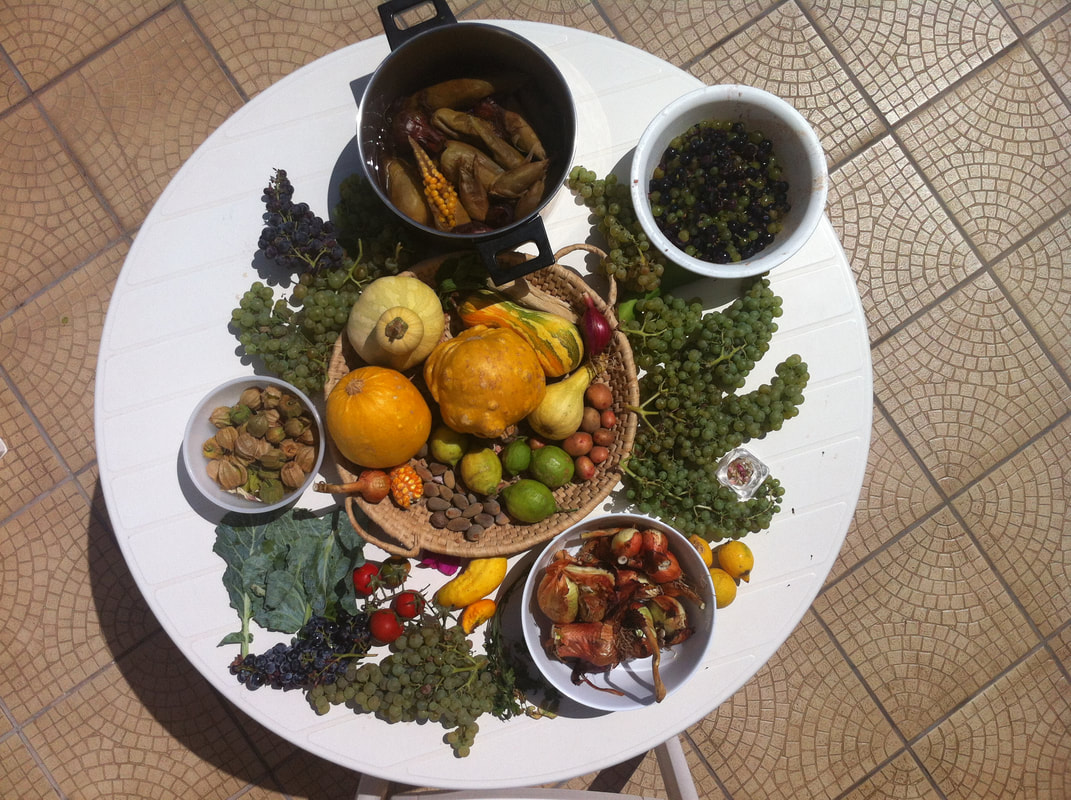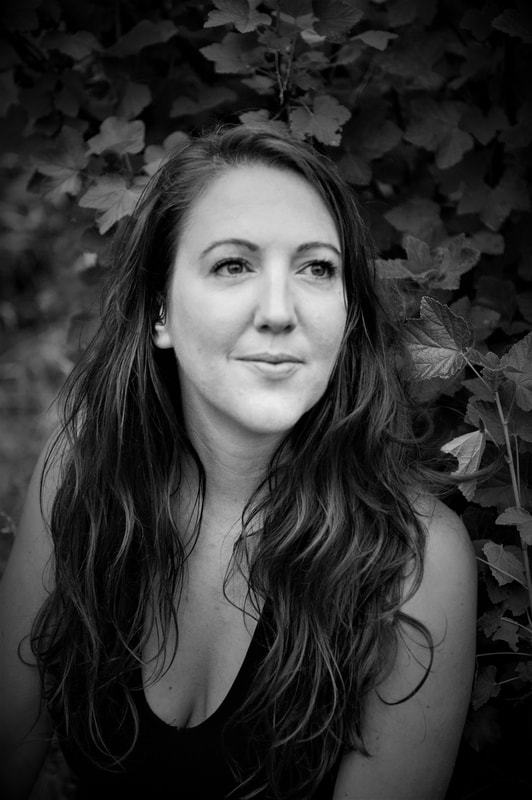|
I grew up and spend some of the year near Wenlock Edge and Robert Hart’s Forest Garden. The last time I was there I saw a lone fox pausing beneath his orchard trees. It was the first time I’d seen a fox in the wild. At the time, I was living in London and was used to seeing foxes almost daily: peering in at me through the front window, asleep under a hedge in a council estate, walking on railway lines before the first morning train, next to honking roundabouts in Westminster. They often seemed to occupy liminal places and times. To see them in such a manicured city was always a great, wild gift.
Each time I see Robert Hart’s abandoned garden, I feel a sense of grief at what once was. He was a visionary and his garden was a hopeful place, a garden of possibility, showing what you can do with any land, of any size, anywhere. When he was still alive, my mother had come circle dancing here, in and around the trees. I wish still that his garden could live and be restored. I have no doubt it would be a mecca, a touchstone that people could come to and see what their own hands can do. Robert was a fascinating person, he was a soldier and code-breaker in World War II, a vegan, he compiled some of Ghandi’s teachings for Reuters and made his garden to create a nourishing, healing space for him and his brother, who was born with severe learning disabilities. Yesterday, I spent the morning in a forest garden, a small farmstead on a mountain called El Roque, in the south of Tenerife. From it, you can just glimpse the top of El Teide volcano and hikers’ routes, from Roque de Jama, pass at the end of the lane. It seems to be on the stage of a vast amphitheatre of silence and birds, with mountains surrounding it. Beneath grapevines, almond, peach, pomegranate, fig, lemon and custard apple trees - potatoes, corn, cabbage, lillies, fennel, dahlias, onions, lemon grass, lemon verbena and parsley grow; yellow cucumbers, pumpkins, melons and squash are bound up with physalis, like tangled USB cables. The garden is about 600m above sea level. As I harvested, a relief of calima breeze blew in from out at sea. Each time it came, I stood for it as if in church and as I was weeding, the scent of lemon blossom and fennel surrounded me. To pick hot fruit from trees, vines and low on the ground - to feel their soft, orb heat, then to peel back the dry lanterns of physalis, or twist off orange tomatoes, or knock your forehead into grapes, then press them to your mouth is one of the greatest sensual pleasures in life. After working the garden, I returned to sea-level for a phone meeting (with the wonderful Poetry Translation Centre). I am working on a poetic translation of a war poem full of anger and hope, by Somali poet Amran Maxamed Axmed. The poem will be part of an anthology to be published later this year. For over an hour with Erica Hesketh, Edward Doegar and co-editors Said Jama Hussein and Bill Herbert, we looked at the poem like scientists and philosophers, questioning and weighing each word against another, against the original poem’s sound and force and the literal translation’s imagery and meaning. When finished I filled my belly with pressed grapes and went to San Blas beach to feel the cloth of the sea. I wasn’t even three metres out when I swam into a huge, lime-hedge-like school of sweetlips. Over 200 silverish-white fish, flashing their yellow fins as they circled around me. I held my breath in the centre of them as if in the nucleus of a massive bird's nest.
2 Comments
1/1/2020 08:35:23 pm
Though it is quite vague for me what are the things you are doing on your garden of course I am interested to know what it is all about. I am wondering what this post could be, but I am thankful that you have given me the ideas on what I should I believe in. By the way, I am hoping that you will succeed on what you are doing with the help of people who have always been there for you. Just like what I said to my friends, I wish nothing but the best for you because I know that you are a hardworking person!
Reply
6/1/2024 10:47:46 pm
In what ways do you see the themes of sustainability and biodiversity reflected in the forest garden ecosystems you've encountered?
Reply
Leave a Reply. |
Author
Anna Selby is a naturalist and poet. Archives
December 2020
Categories
All
|


 RSS Feed
RSS Feed